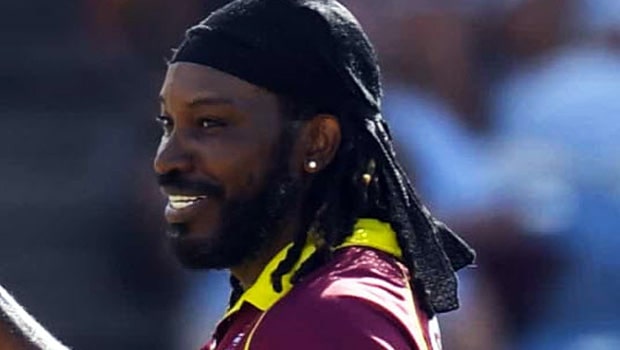From its stature as a gentleman’s game, cricket has surely evolved into a mammoth business enterprise. At the forefront of that change has stood a powerhouse like India, a country that transformed the game completely when they launched the cash-rich Indian Premier League in 2008. That changed the sport completely. While the league has definitely made the lives of a lot of players better, there is still some room for improvement when it comes to the treatment of players in international cricket by the ICC.
West Indies legend Chris Gayle, in an interview with Jamie Alter in Dafanews’ The Spirit of Cricket Podcast, spoke clearly about the current state of cricket—the commercial nature of the sport, the dominance of Indian cricket over all, and the issues players worldwide have to face.
“Cricket is not like the norm back in the days where it’s a gentleman’s sport. It’s a big business, and we can’t shy away from that,” Gayle declared emphatically. He said there was no shying away from this undeniable influence of India in the cricketing world because of its massive fan base and financial muscle as a nation.
“India is the number one market for cricket as well. So when you look at wherever India is playing around the world, it’s like they’re playing a home game because they pull the fans.”
Gayle’s observations are founded on the realisation that Indian cricket fans are great wanderers to support their team, creating a home-like atmosphere even on foreign soil. Such overwhelming support translates into millions of dollars—be it through ticket sales, merchandise, or television rights—the presence of India becomes imperative in the cricketing economy. “You always see the Indian supporters without a doubt. So it’s a good fan base the Indian cricket team has as well, and it’s a big business,” he added.
More importantly, according to Gayle, the cricketers need to get a greater share of this revenue from a financial perspective since they are really the central figures of this multimillion-dollar industry. “The players can actually look to even get a bigger payday out of it as well, because from the marketing side of things, the players are the product. We bring in a lot of revenues from TV rights as well. I mean, at an international level, so for my money, I think it’s fair that the players really and truly get more money.”
Gayle also highlighted financial disparity among players representing top-level cricketing nations and those representing lower-ranked teams. He says that there has to be equal pay across the board, as all players will compete in international competitions irrespective of their ranking in the team. “The lower-ranked teams are not really getting the sort of money that a bigger-ranked team like India or England are getting, even from a retainer point of view. So it’s only fair for those lower-ranked teams—well, we are still playing the same international cricket—they’re just playing less games.”
Showing great sympathy for the dilemma in which modern-day cricketing loyalty presents, Gayle spoke to the hard and cold economic realities driving players like him to put franchise commitments ahead of international needs. “It’s all about the paper. There’s no loyalty there anymore within the game. You cannot fault a player for that. There’s no way you can fault any player for that because at the end of the day, it’s still their livelihood, it’s still their job, they’re still playing cricket.”
Gayle’s comments reflect an increasing trend of players retiring from international cricket to focus on more lucrative franchise opportunities—a shift that threatens the traditional structures of international cricket if not addressed. “You saw over the last couple of months, how many players retire from international cricket? You’re just going to get more and more players retiring from international cricket. So they’re going to be on the losing side, actually – international cricket is going to be on the losing side if they don’t really and truly say, ‘Hey, let’s call a spade a spade and be frank and try to put these things together so everyone can be happy at the end of the day’.”
He also spoke about scheduling clashes between international and franchise cricket, citing the case of the IPL clashing with international fixtures. “When IPL is going on, you have teams or players that pretty much have to leave the IPL to go and play for their country as well. If you have the IPL window, it should just be the IPL window. There shouldn’t be any international cricket within that time frame.”
Gayle’s comments run parallel to what cricketing authorities need to do in terms of franchise leagues and international events by not having any clashes. He said that since the IPL was a marquee franchise event, it should have an exclusive window to attract and retain talent without the hassle of international commitments. “If you want to have the best players in the world playing in the IPL, which is the biggest franchise cricket in history, you got to, you know, let them play in that window without any interference like international cricket.”
Finally, Gayle spoke more generally about the governance of the sport, with the dominance of India. “No one can speak to India. India runs cricket without a doubt. You’ve got to face reality, it’s facts. Who’s going to talk to India? Who’s going to challenge India? No one. They run cricket, they control cricket.”
The forthright views of Gayle put into perspective the complexities and challenges that modern cricket faces. Going forward, this shall be vital in determining what becomes of the game if the commercial interests, players’ welfare, and integrity of international competition are to be in proper balance.

























